Why Does My AC Take So Long to Cool the House?
January 11, 2022
Central air conditioners will naturally take longer to cool homes when it’s sweltering outdoors. However, when your AC is taking a long time to cool your house despite average outdoor temperatures (typically, 70°F year-round in Southwest Florida), that’s when you might have a problem.
If your AC is taking too long to cool your home, it could be as simple as fixing a dirty air filter, or as complicated as replacing an ineffective AC system.
To help you troubleshoot frustratingly slow cooling times, we’ll take a look at 5 major causes:
- Refrigerant leak
- Dirty air filter
- Dirty coils
- Leaky ductwork
- An old or undersized AC system
We’ll also review DIY fixes as well as when to call in the professionals.
Want a professional HVAC technician to inspect your AC today?
Get faster cool air circulating throughout your home today. Call Advanced Air at (888) 853-5143 or schedule an appointment today. We provide 5-star service and a 100% satisfaction guarantee on our services.
Refrigerant Leak
To understand why refrigerant leaks have a considerable impact on an AC’s functioning, let’s first cover its purpose in the system.
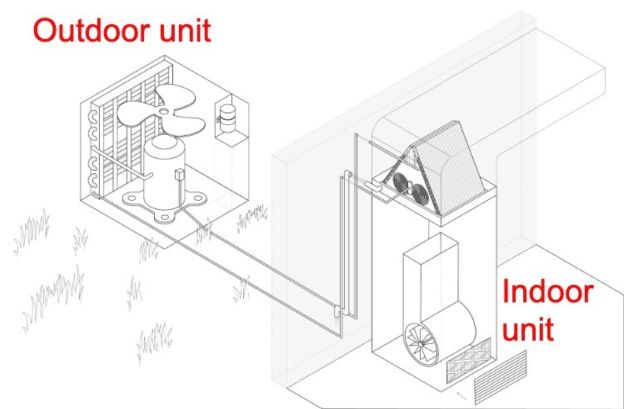
Central AC systems have outdoor and indoor units.
Central air conditioners have outdoor and indoor units. The indoor unit has an evaporator coil that absorbs warmth from the indoor air; the outdoor unit has a condenser coil that dumps said warmth outside. Both units circulate a chemical agent, called refrigerant, that transfers warmth between the two units using refrigerant lines.
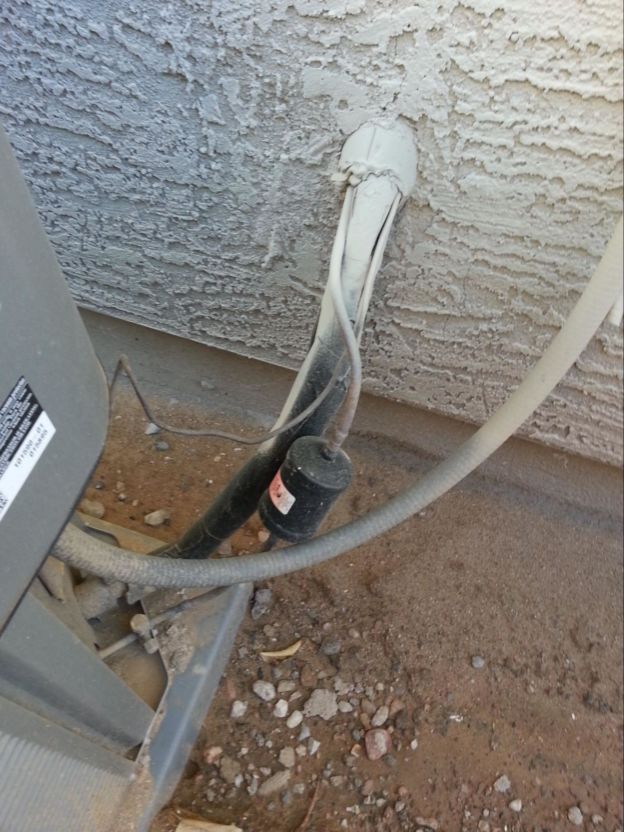
Central AC systems have refrigerant lines that connect the outdoor and indoor units.
When there is a leak in the refrigerant lines or the coils, your AC cannot cool your home efficiently. Since it can’t absorb and dump as much heat at once, it must run longer than usual to meet the set thermostat temperature.
You’ll know you have a refrigerant leak if:
- Your AC is taking longer than expected to cool your house
- You feel warm or hot air coming out of the vents
- You hear a hissing or bubbling sound coming from your AC units or the refrigerant lines
- You see ice buildup on the AC units or the refrigerant lines
- Your home feels more humid than normal
You might wonder if something besides a refrigerant leak could cause lower refrigerant levels. Unfortunately, the answer is no. Refrigerant works in a closed-loop system and cannot decrease unless there is a leak.
How to Fix
Refrigerant is a toxic substance, so if you suspect you may have a leak, it’s essential to call a licensed HVAC professional. Your technician will be able to find the leak, repair it, and then refill the system with the proper amount and type of refrigerant.
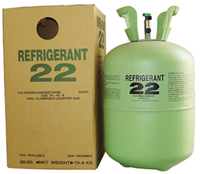
Any AC system using the phased-out R-22 refrigerant might need replacement.
Note: If your system uses R-22 refrigerant, which the government has phased out, you might need to replace it.
Dirty Air Filter
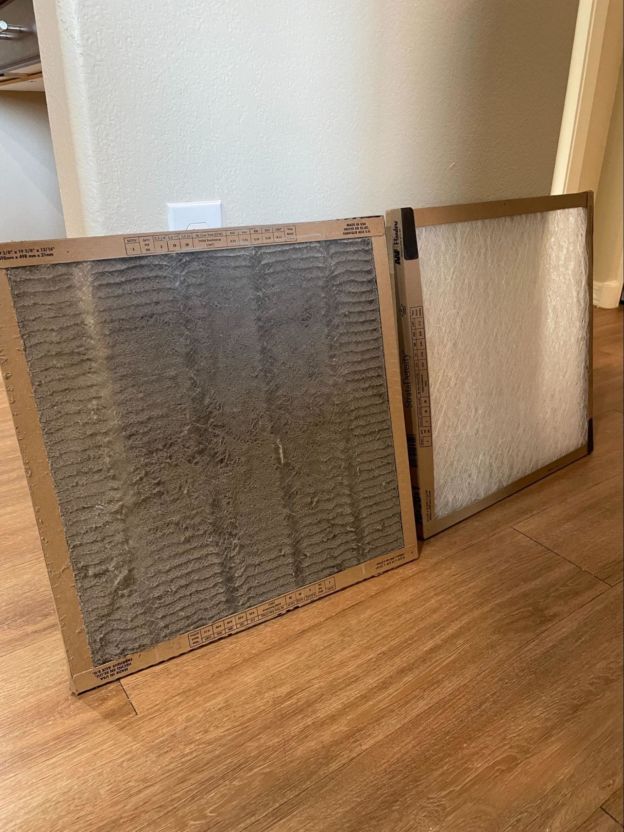
Dirty air filters should be replaced every month during summer and every 1-3 months during winter in Southwest Florida.
Above, we talked about how the refrigerant absorbs the warmth in the indoor air. This warm indoor air is first sifted for debris and dirt via the AC filter before entering the AC system.
A dirty air filter creates a barrier and reduces the air that can enter the system. As a result, the AC must run longer to cool your home because it can no longer cool sufficient amounts of airflow to hit your desired temperature.
Dirty air filters and longer AC run times can also cause problems like:
- High energy bills
- Shorter lifespans for AC systems
- Overheating
How to Fix
Check your AC filter to see if it’s clogged. If it’s dirty, you’ll need to buy a new AC filter that is the right size for your system and replace the old one. Check the arrows on the filter’s frame when replacing the old one to ensure you’re putting it in the right way.
It’s best to replace the filter every month during the summer and every 1-3 months during the winter in Southwest Florida. If you don’t want to remember to replace the air filter, you can enroll in a maintenance plan. For example, Advanced Air’s CoolClub members get a maintenance visit a year and priority service.
Dirty Coils
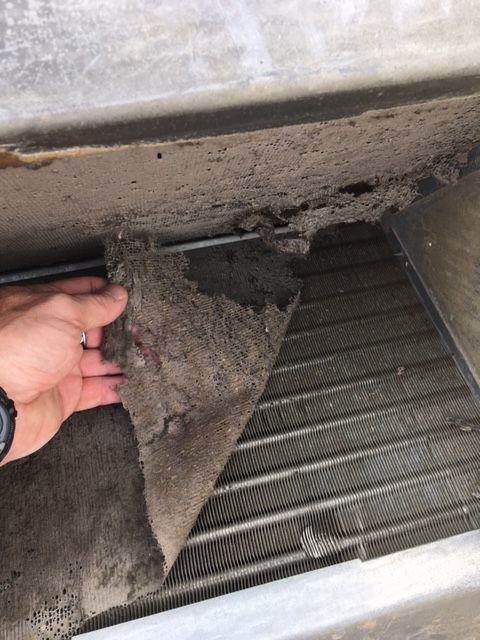
Dirty evaporator coils might be why your AC system takes so long to cool the house.
Your AC system has coils in both its indoor and outdoor units: the evaporator coil and the condenser coil. These coils circulate refrigerant, absorbing the heat from your home’s warm air and dumping it outside.
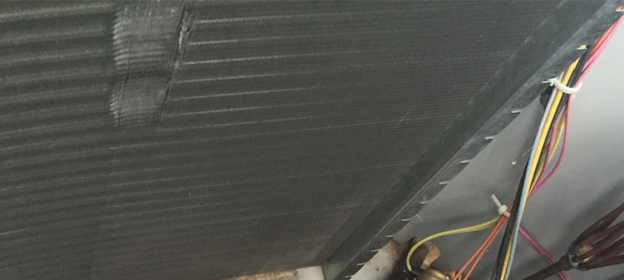
Clogged condenser coils can slow your AC down.
When either coil is dirty and covered in debris or dust, the refrigerant cannot absorb and dump the heat well, slowing down the cooling process.
How to Fix
Contact a professional HVAC technician to inspect the evaporator and condenser coils. If they are dirty, the technician will use the proper tools to clean them carefully.
You can lightly clean your condenser coils using coil cleaner and a gentle water spray. Since condenser coils are prone to getting leaves and other debris on them, make sure to trim any shrubs and trees a few feet away from the outdoor unit.
Tip: Enroll in a maintenance plan to have your coils regularly cleaned, so your AC always functions at optimal performance.
Leaky Ductwork
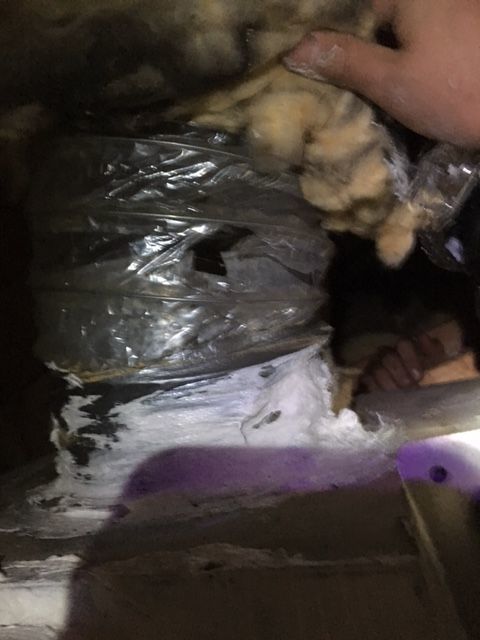
Does your house have leaky ductwork?
If the house’s ductwork is leaky (through disconnections or holes), the AC will ultimately have to work harder and longer to keep your home cool. In general,most homes lose 20-30% of their conditioned air due to leaky ductwork.
All homes have two types of ductwork:
- Return ducts, which carry your warm indoor air into the AC’s indoor unit
- Supply ducts, which carry the now cool, conditioned air into your hom
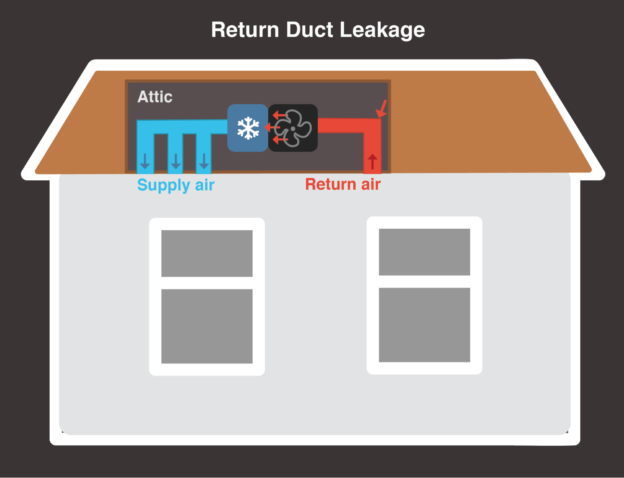
Return duct leakage can make your AC run longer to cool the house.
Return ductwork leaks make it harder for the AC to pull in sufficient amounts of warm air to be cooled. As a result, your AC will need to run longer to match your set temperature.
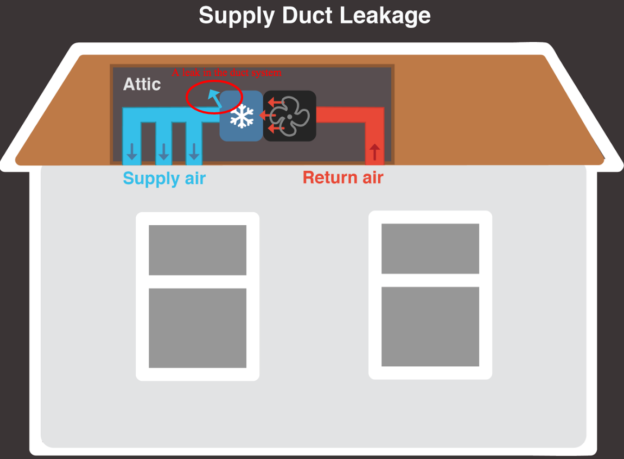
Supply duct leakage can make your AC take longer to cool the house.
Supply ductwork leaks allow already conditioned air to escape, weakening the airflow and making it feel like your AC takes a long time to cool your home. The AC is properly cooling your home—it’s just not properly circulating.
Other signs that your home has leaky ductwork include:
- Uneven temperatures throughout the house
- Extremely cold or hot spots inside
- Excessive dust blowing from the supply duct vents
How to Fix
Most houses have leaky ducts that have gone without inspection for a long time. Contact an air quality expert if you suspect that your house has leaky ductwork.
The expert will inspect the ductwork, seal any leaks, and repair the ducts if necessary. You can also get your ductwork cleaned if excessive dust comes out of the supply duct vents
An Old or Undersized AC System
If your AC is too old or undersized for your needs, it won’t be set up to effectively cool your home. In this case, it will run longer, drive up your energy bills, and ultimately require a replacement.
Old AC System
Most ACs last about 8-10 years in Florida, so if yours is around that age, it might be due for a replacement. Over time, normal wear and tear will cause major parts to break down, leading to higher run times and insufficient cooling capacity.
Undersized AC System
It’s crucial that your contractor installs the right-sized AC system for your home. If they don’t, your AC will constantly struggle to cool your home, running longer and driving up your energy bills.
How to Fix
If your AC system has passed its 10th birthday, it might be time to consider a new air conditioner. Contact an HVAC specialist for an installation estimate to help determine if the system needs a repair or replacement.
If you suspect that the AC system is too small, contact an HVAC professional for an evaluation, a Manual J Load sizing calculation, and a quote for an appropriately sized AC system to meet your cooling needs.
Contact Advanced Air for faster air conditioning
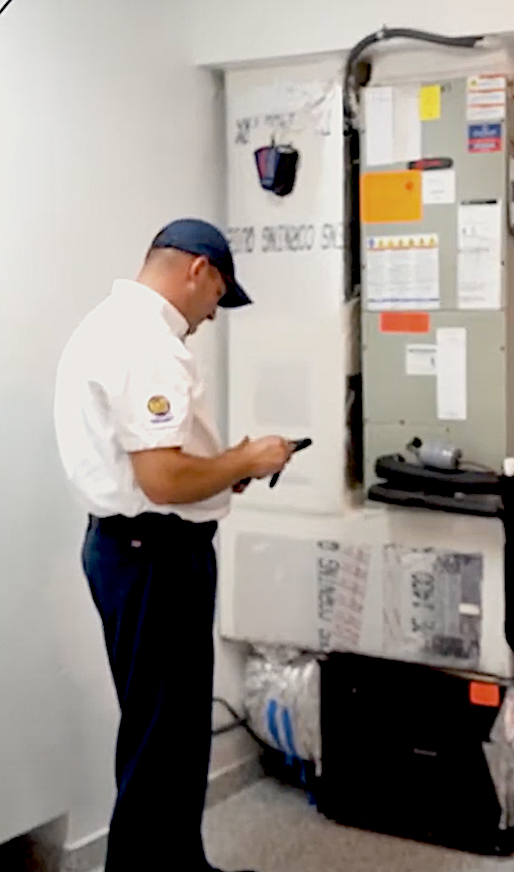
Advanced Air technicians are certified to handle any AC or ductwork request you may have.
Since 1989, Advanced Air has worked hard to keep customers cool and comfortable. Our NATE-certified and tri-county certified technicians perform to the highest of industry standards. We’re the 5-star service company to call if you need a refrigerant leak repair, AC tune-up for dirty air filters and coils, ductwork sealing, and free AC system install estimates. Call us today at (888) 853-5143 or schedule with us online.
- Posted in:
- Air Conditioning

